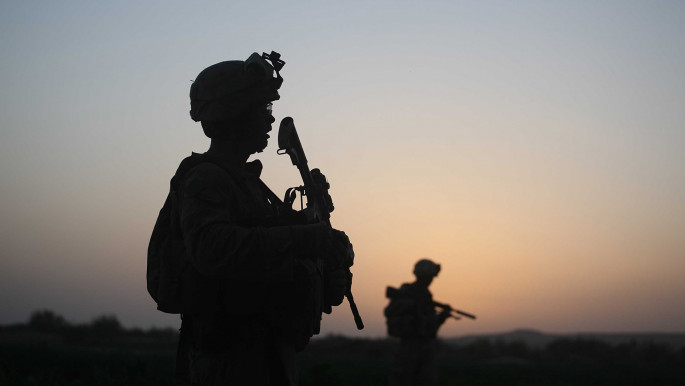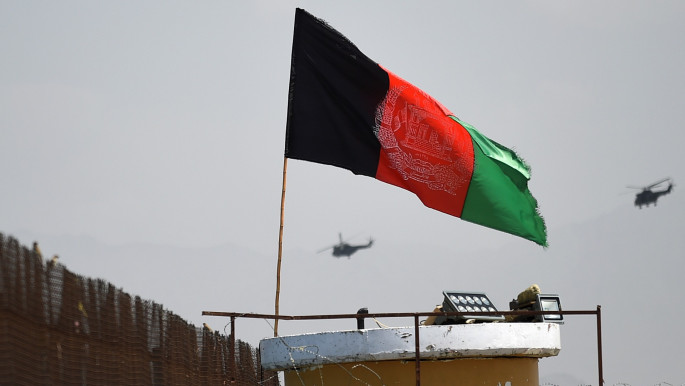How looming US elections could derail fragile Afghan peace talks
Each with their own strategic interests, the US, Taliban and Afghan government have emerged as key players in the war's endgame.
For the Trump administration, withdrawing US forces from Afghanistan before presidential elections in November is a key priority. If elected, Democratic presidential nominee Joe Biden could, however, adopt a different strategy, possibly slowing the peace process.
The long-awaited intra-Afghan peace talks - aimed at laying out a roadmap to a future Afghanistan, ideally with a cease-fire agreement – faced initial delays due to logistical questions over the opening ceremony in Qatar's capital.
The release of prisoners has also emerged as a critical sticking point over the past six months between the Taliban and the Afghan government, threatening to derail negotiations entirely.
The Taliban had refused to engage in talks until the last of 5,000 prisoners were freed as part of the peace deal agreed with the US in February. In August, Afghan authorities released 400 Taliban prisoners in exchange for Afghan commandos, but the thorny issue of releasing six high-profile Taliban militants from Kabul and transferring them to Doha was still unresolved.
 |
Trump's commitment to reducing the number of US troops to 5,000 by November is aimed at scoring domestic political points |  |
In a last-minute face-saving solution, the militants were flown to Doha on the eve of scheduled talks, paving the way for negotiations to finally go ahead. Some Western countries had strongly opposed their release, accusing them of fatal attacks against their nationals, including aid workers and soldiers.
The Afghan government has been reluctant to release Taliban militants from the very outset of the US-Taliban accord, but has succumb to pressure from the Trump administration.
 |
|
| Read more: India-Pakistan proxy war a real threat in post-US Afghanistan |
As part of the February accord, the US has begun withdrawing troops after securing guarantees from the Taliban that Afghanistan would not become a launchpad for terrorist attacks. The US-Taliban deal calls for a withdrawal of all US forces by May 2021 but does not bind the Taliban to reach a political settlement with the Afghan government.
Trump's commitment to reducing the number of US troops to 5,000 by November is aimed at scoring domestic political points, but even Western allies are concerned over the implications of such a speedy withdrawal.
Having been side-lined over the past two years in US-Taliban peace negotiations, the Afghan government of Ashraf Ghani is hoping for a change in American leadership. Kabul's embarrassment continues to grow as the Taliban emerges more powerful both politically and militarily amid the US drawdown of its troops.
After a complete withdrawal of US troops next year, the fragile and beleaguered Afghan government would not be able to stand against the strength of Taliban militants. The Doha peace talks have done little to allay fears of an empowered Taliban overrunning Afghan forces and creating an 'Islamic emirate'.
 |
The Afghan government could well attempt to buy more time and draw out negotiations in the hope that the Democrats win November's election |  |
Some critics even claim that a silent understanding has emerged that if intra-Afghan talks fail the US would not intervene if the Ghani government was ousted.
The delay tactics employed by the Afghan government to slow the peace process reflect these fears, together with the hope for a change of leadership in Washington. Indeed, it was due to these stalling tactics, including intransigence over prisoner releases, that peace talks are only now taking place six months after originally scheduled.
 |
|
| Read more: Winners and losers: The future of Afghanistan's fragile peace process |
The Ghani government is afraid that its political power and the unity of the multi-ethnic Afghan forces could collapse after the withdrawal of US combat troops. Just a few months ago a retired Afghan general Abdul Jalil Bakhtawar, a dogged enemy of the Taliban for decades, defected to the militants in the western Farah province.
Such defections among Afghan forces are likely to increase as soon as the US accelerates its military withdrawal and the Taliban gains more control over Afghan territory.
Like Trump, Biden also wants to bring the majority of US forces in Afghanistan home, but he wants a residual troop presence for counterterrorism operations in Afghanistan.
He wants to weaken the Taliban and strengthen the Afghan government in a bid to conclude a ceasefire deal between Afghan authorities and the insurgent group. Moreover, he objects to Pakistan's support for Taliban fighters.
The Afghan government views Biden's dislike for the Taliban and its supporters as working in its favour and could well attempt to buy more time and draw out negotiations in the hope that the Democrats win November's elections. Seemingly aware of Kabul's intentions, the Trump administration has accelerated its troop withdrawal and pressed Afghan officials to implement the agreements of the February peace deal.
Even if the Democrats do come to power, Trump's desire to acquire political capital by expediting the Afghan peace process at all costs would leave any new administration with little room for manoeuvre.





 Follow the Middle East's top stories in English at The New Arab on Google News
Follow the Middle East's top stories in English at The New Arab on Google News


